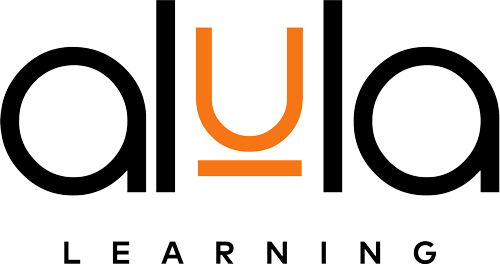“eLearning Myths, Legends or Facts?
In this age of technology, online education is commonly heard in both schools and organizations and this has changed the concept of learning.
Simply put, online education is a kind of instructional system delivered to learners via the internet. This has enabled instructors or educators reach multiple students at different locations without the need of a traditional classroom. Online education is also often called online learning, distance learning, eLearning or virtual learning etc.
Today we are going to take a look at the common myths most people have about online education.
Are these beliefs true or false?
Well, let’s find out together….
HISTORY OF ONLINE LEARNING
The concept of online learning is believed to be originated in the mid-19th century when the U.S Postal Service was developed. The idea of long distance communication led to the development and application of what was called commercial ‘’ correspondence colleges’’, where instructional messages would be distributed through the postal service between students and professors.
Today, due to the advancement in technology, distance learning has become more sophisticated and widely available. Many institutions and organizations around the world have adopted online learning.
Common online learning Myths
Now, we will delve into the common beliefs people have regarding online education. Let’s remember that part of learning and growing is the ability to challenge your assumptions.
#1 Online Courses are lower quality
It is easy to assume that online learning is not as effective as classroom learning. Many people are skeptical about the quality of learning they experience when it comes to online education. According to Purdue Global, the percentage of students enrolled in traditional on-campus has been decreasing every year.
Some research shows that on average, students retain 25-60% more material when learning online compared to only 8-10% in a classroom. This is mostly due to the students being able to learn faster online; e-learning requires 40-60% less time to learn than in a traditional classroom setting because students can learn at their own pace, going back and re-reading, skipping, or accelerating through concepts as they choose
Online courses have analytic tools that help educators pinpoint problems in their content. This is rapidly becoming an alternative to the traditional learning methods.
Online courses, especially the ones offered by Alula Learning are of premium quality. Our contents enable learners grasp at their own pace and this gives room for effective learning.
#2 Cheating is common with online courses
Another very common myth is the prevalence of cheating when it comes to online education, but this cannot be any further from the truth.
A study by Marshall University found that there is no significant difference between the two, with 32.1% of brick and mortar school students admitting to cheating, compared to 32.7% of online students. In addition, more traditional school students admitted to “academic dishonesty.”
Academic dishonesty is believed to be much easier to detect in recent times due to variety of online tools made available to identify them.
For instance, tools such as Dupil Checker or PaperRater amongst others have made plagiarism impossible to commit. These tools ensure that you do not take credit for other peoples’ work.
A Learning Management System is an online platform that manages your entire learning process. It can also monitor the learners work to ensure that there isn’t any form of dishonestly when completely task or quizzes.
Luckily, at Alula Learning we develop Learning Management Systems with top-notch features such as security, compatibility with various devices, analytics reporting and much more.

#3 Online Learning is too easy
Some people sign up for online classes with the belief that they can easily scale through. The truth is that online learning is anything but a walk in the park. One of the reasons being that a lot of educators up their expectation of learners.
Also, a lot of monitoring of learner performance is carried out by educators to ensure that no student is slacking off. Online learning is as rigorous as classroom learning, some people also admit that it is more demanding.
Online learning involves self-discipline and self-motivation. Another good aspect to online learning is the freedom it gives learners to express themselves in the discussion forums, shy people can easily share their thoughts and questions easily.
Regmi, argues that not only should students expect online courses to be just as challenging as their on-campus counterparts, but they should want them to be.
#4 Online Learning offers little or no social interaction
When we talk about online learning most people envision ‘someone staring at his computer in a dark room all-alone’, but in reality online learning creates a lot of opportunities to network. Poor interaction in online education is as a result of poor course design rather than a flaw in the entire online education system.
Learners can join discussion groups were they can share their thoughts and befriend like-minded individuals. Communication is also made possible via phone calls, video conferencing, and chat or text messaging.
“Online discussions can give a lot more insight into people,” Wesson says. “There are rules and etiquette about how to communicate, and you learn quickly how people feel on a certain topic.”
Author Allison Bruning says her class was instructed to check the forum boards frequently in her online program. “The more we interacted, the more connected I felt with my classmates.” (Brianna Flavin, 2019).
#5 Online Learning requires you to be tech savvy
Another common myth is the belief that one has to be advanced in operating a computer before being able to use an online learning platform but the truth is with only elementary knowledge in using a computer you can easily maneuver any online learning platform.
Many online educators have worked tirelessly to create accessible, user-friendly online courses, with the goal of creating an intuitive interface that doesn’t interfere with the learning process. This means that the bulk of online education courses require no more special computer skills than shopping on Amazon
Advancement in technology has enabled developers ensure that the interface for these platforms are friendly and easily accessible by any individual.
Alula Learning makes certain that all its online contents are user friendly, easily accessible and usable. We make sure that your learning process is seamless and productive.
In conclusion
It is without a doubt that online education has a bad reputation attached to it. Most of these assumptions are not only false but the exact opposite of what is believed.
As a result of the COVID 19 pandemic, most institutions and individuals have understood and accepted the various benefits associated with adopting online methods of education. From its efficacy to its cost-effectiveness.
The only way to discredit these myths is the reconditioning of our minds with regards to online learning.
Therefore, it is safe to say that online education is here to stay.
What Next?
The world of online learning is gradually gaining momentum in Africa. A good number of schools and organizations are utilizing the numerous benefits attached to online or blended learning.
To get more information or know how we can help you transition with ease to online learning kindly contact us with the following information below.
Email: [email protected]
Website: www.alulalearning.com
![]()
![]()
![]() : @alulalearning
: @alulalearning
About the Author

Maureen is a sales and marketing strategist for Alula Learning. She speaks English fluently and holds a bachelor’s degree in Business Administration from Nnamdi Azikiwe University, Nigeria.
Maureen Achoru
